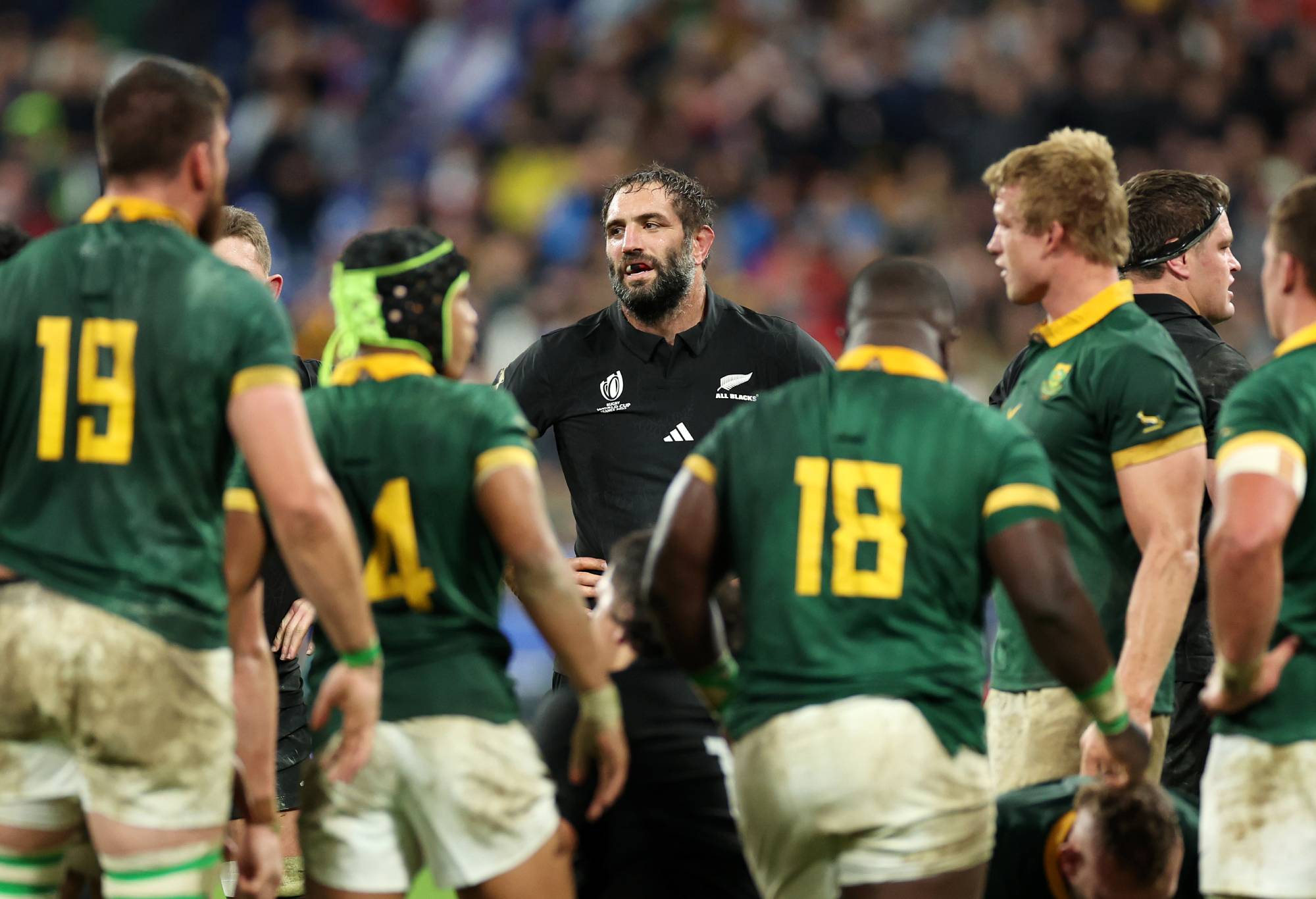Razor’s pursuit of ‘hard bastard’ Sam Whitelock reveals the ugly truth about the modern All Blacks

Talk of Sam Whitelock returning home tells us a few things. First, we lack genuinely hard men in New Zealand rugby.
We have locks, many of them blessed with all the ability to succeed. But few, if any, with the ruthless, win-at-all-costs streak of Whitelock.
He is simply a hard bastard – physically and mentally.
Once upon a time, men of that ilk were a staple of our rugby teams. Now, Whitelock’s almost one of a kind.
This situation also tells us new All Blacks coach Scott Robertson will skirt round the edges of New Zealand Rugby’s counterproductive player eligibility regulations.
I wrote about them last week and am heartened to see Robertson potentially using whatever means at his disposal to pick players from Pau or wherever else.
The Whitelock scenario also speaks of the leadership vacuum in our rugby.
Sam Cane might’ve been All Blacks captain in name, but Whitelock was its leader.
I wouldn’t just get Whitelock back, despite him being 35 and having a huge number of playing kilometres on the clock, I’d make him skipper as well.
Samuel Whitelock of New Zealand looks on during the Rugby World Cup Final match between New Zealand and South Africa at Stade de France on October 28, 2023 in Paris, France. (Photo by Chris Hyde/Getty Images)
Richie McCaw’s tenure skewed a bit of thinking here. We became wedded to this idea that a captain is some kind of king and must have an uninterrupted reign, until he chooses to retire.
McCaw was a one-off, but we applied the same standard to his successor Kieran Read and All Blacks management never entertained not picking Read, regardless of form or what shape his body was in.
Cane, in turn, was always the heir apparent, no matter the arguments about whether he was actually worth a place in the side. It wasn’t always this way.
Captains came and went in my youth, not least in the years before McCaw.
I can think of Taine Randell, Anton Oliver, Todd Blackadder and Reuben Thorne all being installed, before we settled on Tana Umaga.
It was never a job for life and no-one expected it to be. Least of all the captains themselves.
At his age, Whitelock is far nearer the end of his career than the start, but for this All Blacks team at this time, he’s the ideal option.
The fact he’s worked with Robertson before also makes him a natural conduit between the staff and the players.
(Photo by Kai Schwoerer/Getty Images)
Thinking of Thorne, Read and captaincy leads me to a quick aside, about my first week covering the Canterbury rugby team.
Their 2008 squad was yet to be announced, but Rob Penney took me aside and said a young Read was going to be installed as captain.
“We’ve got high hopes for him,’’ Penney said. “We think he could be the next great man.”
I was a bit green back then and tentatively asked who the current great man was. “Reuben Thorne,’’ replied Penney.
He could’ve given me a dozen guesses and I’m not sure Thorne’s name would ever have ended up on the tip of my tongue. But I digress.
Robertson is a realist and as he casts his eye over our Super Rugby Pacific franchises, it’s clear he sees a lack of men capable of winning Test matches of consequence.
I could sit here, for instance, and write up a depth chart of players in every position and opine about their All Blacks selection chances.
But the truth is, many of our best players aren’t here. They’re in places like France or Japan and Robertson knows that as well as anyone.
Then there’s another absentee like the retired Dane Coles; a man cut from a similar cloth to Whitelock, who remained in the All Blacks’ squad after his best days were behind him.
Coles could still play on occasion, but it was his uncompromising attitude and hatred of defeat that made his presence critical to the group.
Watch every match of Super Rugby Pacific ad-free, live & on demand on the Home of Rugby, Stan Sport
Aaron Smith and Brodie Retallick were others in that category, TJ Perenara (when fit) too.
So that’s Robertson’s challenge: finding hard bastards that don’t accept failure or excuses or token efforts.
Any rookie coach needs men he can rely on and Whitelock remains one of those.
My interest now will be in seeing what lever Robertson can pull to get Richie Mo’unga back in the mix as well.
These are interesting times for rugby in New Zealand.
Super Rugby Pacific shows us that we still produce many fine athletes, with an enviable array of skills but that we’re increasingly short of actual rugby players.
You don’t contemplate going back to 35-year-olds otherwise.
